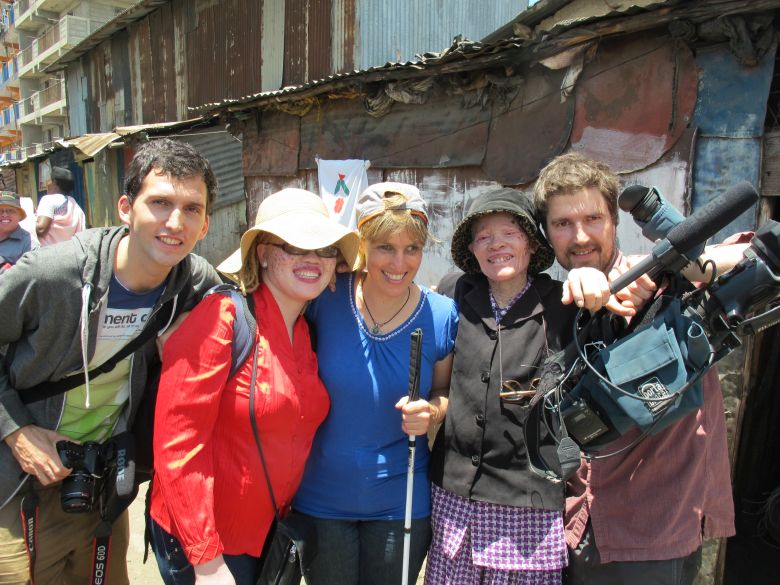About frogs, beavers, and eagles (Part 2)
In today’s blog post we further explore the different kanthari types and their specific approaches problem solving. I’ll use three different film projects that were initiated out of very different motivations.
Yesterday, I wrote about the Mukuru Angaza Film Academy. An initiative for film-loving slum children. Gikufu, the founder, is a ‘frog’ as per the kanthari jargon. Recap: A frog is a person who has been directly affected by social ill and who can initiate a change from within. The experience of an acute crisis or continuing injustice can give him/her the jolt to rebel or better to work on a sustainable solution. Frogs are part of their own target group and thus become beneficiaries of the solutions they have developed.
Today we will address ‘the beaver’.
In kanthari jargon, a beaver is first and foremost an interested spectator. The beaver type is situated on the side-lines and, unlike the frog, is only moderately or not at all personally affected. However, a beaver can transform his interest about a specific problem into direct action. Beavers are quite capable of empathy. But, when compassion turns into pity, a messiah complex often sets in. If they do not allow themselves to be overwhelmed by emotions and keep a certain inner distance, they may be more able to assess the problem objectively.
Among kantharis, beavers are quite rare. There is a reason for this; it takes a strong initial motivation to leave everything behind to concentrate fully on social change.
Often beavers are searchers and the social project they initiate is only a part of their own journey and therefore these are rather short-term actions. Actions that can have long-term effects. However, when beavers experience the effects of their work directly, they often tend to continue for a longer period of time.
One of such beavers is Tomek from Poland, a 2013 kanthari graduate. He had studied business administration and during his first office job realized that he was not made for “business as usual”. So, he quit and started looking for a new life. His first social project was about re-integration of prisoners. The initiative was successful and implemented in different European countries and is continued by volunteers from his former university. But Tomek, the beaver, did not stick with it for long, he soon found himself another goal. This time in Ghana, where he worked with children and helped build a library.
Next stop: Nepal. There in picturesque Pokhara, he met Khom Raj Sharma, a 2009 kanthari graduate. Khom is blind and offers skill training for the blind and visually impaired. Tomek used his background in business administration to help Khom to open the first cybercafé, a meeting place for blind and sighted people.
And the beaver moved on.
He joined the Jagriti Yatra, an ambitious train journey of discovery and transformation that takes hundreds of India’s highly motivated youth, especially those who are from small towns and villages of India, on a 15 day, 8000 km national odyssey to meet the role models – social and business entrepreneurs – of the country. And then Tomek found kanthari which initially lead to a culture shock. A seven months intensive exploration into his own planned venture together with 21 participants from almost as many countries.
(from the book “The dream workshop of Kerala, changing the world, is something you can learn”)
—
“There was not only one Khom. Every day, I lived and worked with many Khoms, with charismatic, extroverted and therefore sometimes quite exhausting people from all over the world. They all had different goals. And they all had levels of energy that were a little intimidating to me.”
Tomek’s year was indeed full of untameable temperaments. There were participants from indigenous tribes in both North and South India who stood up for human rights, committed feminists from Kerala and Nigeria who stood up against male violence and oppression. There was a Zambian who after having lost his right leg in a bus accident, a few years later lost his sight due to a brain tumour. He had the plan to build an organic farm to train the blind and physically disabled.
And there was Thomas, a survivor of the civil war in Liberia, a poet and rapper, who has since opened a poetry slam café where young traumatized people are given alternative ways of channelling their aggression.
—
Among the many frogs who developed their projects out of existential needs, Tomek asked himself again and again: “And what is my drive? What is the impact that I want to make?”
Tomek was very conscious of his role as a spectator and since he was a passionate traveller, the idea was born to visit the many kanthari initiatives around the world to document these by making short films. In addition, he together with the well-known Dutch documentary filmmaker Marijn Poels, produced a one-hour film “KANTHARI – CHANGE FROM WITHIN”. A documentary about our institute and about the work of 4 kantharis from East Africa.
Although Tomek, the beaver, has long since moved on and worked on different other goals, his short films have created a long-lasting impact for many kantharis.
Several short films that were made by Tomek can be found at: https://www.kanthari.org/kanthari-media/videos/

